Essayer OR - Gratuit
Lying as an Art Form
The Atlantic
|September 2020
Elena Ferrante’s new novel about adolescence explores the power of fictions.

“To tolerate existence, we lie, and we lie above all to ourselves,” Elena Ferrante observed in a 2002 interview. “Falsehoods protect us, mitigate suffering, allow us to avoid the terrifying moment of serious reflection, they dilute the horrors of our time, they even save us from ourselves.” For Ferrante, the falsehoods that people tell one another and themselves in everyday life— I am happy; I love my wife; I didn’t know what I was doing—are “lovely tales,” or “petty lies.” At moments when guilt and shame threaten our conscience, when they shake our deepest beliefs about who we are, petty lies stop us from looking too closely at ourselves.
Literary fiction is also a lie, according to Ferrante, but a lie that is “made purposely to always tell the truth.” The lies that fiction tells—once upon a time a person said and did this and that—are unmotivated by self-interest. Fiction is an illusion that tinkers with our sense of reality to lay bare the price we pay for our petty lies: Fiction shows us that narcissism and self-doubt impel us to hurt others; that we are quick to betray people who trust us; that love can be more destructive than hate. Central to Ferrante’s theory of fiction as an act of truth-telling is her conviction that the truth dawns more radiantly when glimpsed through the veil of fiction’s lies.
Cette histoire est tirée de l'édition September 2020 de The Atlantic.
Abonnez-vous à Magzter GOLD pour accéder à des milliers d'histoires premium sélectionnées et à plus de 9 000 magazines et journaux.
Déjà abonné ? Se connecter
PLUS D'HISTOIRES DE The Atlantic

The Atlantic
CANADA IS KILLING ITSELF
THE COUNTRY GAVE ITS CITIZENS THE RIGHT TO DIE...DOCTORS ARE STRUGGLING TO KEEP UP WITH DEMAND.
28 mins
September 2025

The Atlantic
WHY MARRIAGE SURVIVES
The institution has adapted, and is showing new signs of resilience.
9 mins
September 2025
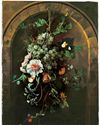
The Atlantic
The Forgotten Still-Life Prodigy
The 17th-century painter Rachel Ruysch was once more famous than Vermeer.
9 mins
September 2025

The Atlantic
THIS IS WHAT THE END OF THE LIBERAL WORLD ORDER LOOKS LIKE
In a post-American world, greed and nihilism are destroying Sudan.
39 mins
September 2025

The Atlantic
The Judgments of Muriel Spark
The novelist Muriel Spark died almost 20 years ago, but she still regularly appears on lists of top comic novelists to read on this subject or that. Crave more White Lotus-level skewering of the ridiculous rich? Try Memento Mori, The New York Times suggests. An acerbic take on boring dinner parties? Symposium. Interested in “the fun and funny aspects of being a teacher”? Read The Prime of Miss Jean Brodie— also good for learning how to be a highly inappropriate teacher, if you want to know that too.
12 mins
September 2025
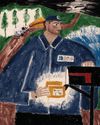
The Atlantic
Playing Mailman
A new memoir considers what public service is, and what it isn't.
8 mins
September 2025
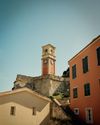
The Atlantic
Chasing le Carré in Corfu
If you're trying to find someone who doesn't want to be found, you don't go to the obvious places.
20 mins
September 2025
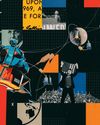
The Atlantic
THE MAN WHO ATE NASA
The agency once projected America's loftiest ideals. Then it ceded its ambitions to Elon Musk.
27 mins
September 2025

The Atlantic
CAPTAIN RON'S GUIDE TO FEARLESS FLYING
The pilot who calms the nerves of anxious fliers
7 mins
September 2025
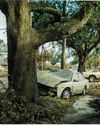
The Atlantic
GOING BACK
What home meant before, and after, Hurricane Katrina
10 mins
September 2025
Translate
Change font size
